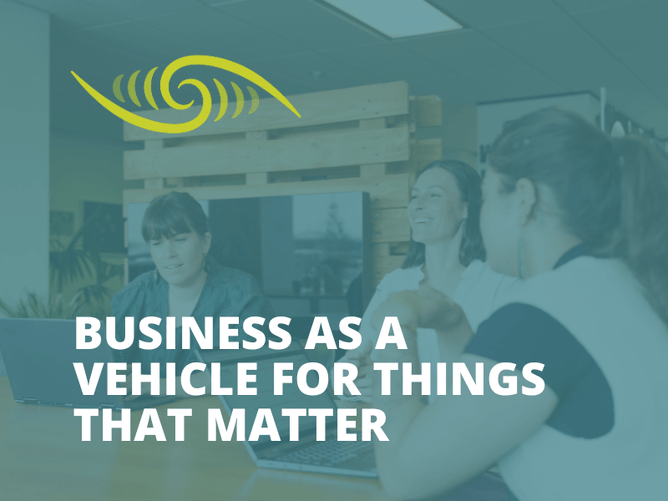For many of our friends and whānau, running a business isn’t about chasing world domination or maximising profit at all costs. Instead, it’s about creating a life that feels balanced and intentional—a life that allows for flexibility, connection, and alignment with values.
A business can be a vehicle for the things that matter most. It offers the freedom to pick and choose your hours, to drop off and pick up your kids from school, to go on class trips, or attend wānanga and reconnect with your community during the week. These are opportunities that are often out of reach in a traditional 9-to-5 job.
For many Māori businesses, profit isn’t the sole focus. The values underpinning these businesses often lead to different choices—like stepping aside to let another Māori business win a contract if they need the work more, or choosing collaboration over competition to strengthen relationships. These choices reflect a broader vision of what business can be: a tool to uplift not just ourselves but also our communities.
At Puna Awarau, we share this outlook. Sure, growth and revenue are important, but they’re not the only metrics of success. For 2025, alongside financial targets, we’re aiming for goals that enable us to live our values. We discuss things like
Supporting our marae and iwi
Creating a kaupapa fund to make it easier to engage in meaningful kaupapa.
Supporting kohanga and kura kaupapa
Spending more time learning and imporivng our reo Maori
Structuring our work around kids hours to ensure we’re present for pick-ups, drop-offs.
Having some freedom to focus on what truly matters.
This approach doesn’t make businesses any less capable, committed, or able to deliver for clients. In fact, we believe it does the opposite. By staying true to values and keeping in touch with what matters most, businesses are more aligned, more connected, and better positioned to serve clients. It enables delivering not just on outcomes but also on the kaupapa that underpin the work.
Yes, it’s not always smooth sailing, and we are constantly adjusting to find the right balance between profitability, workload and kaupapa —but it’s the intention behind it all that truly counts.
This way of thinking about business—less about cutting costs or climbing ladders, and more about supporting people, values, and kaupapa—is something to be celebrated. It reminds us that success isn’t just about the bottom line but about what we make possible for ourselves, our whānau, and our communities.
How do you view success in your business or mahi? What would you change to make it align more closely with what matters most to you?


